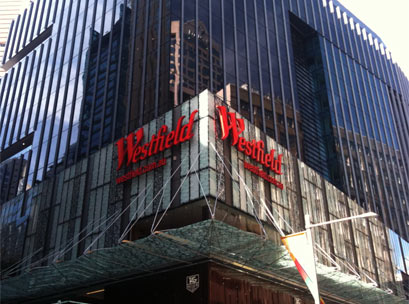There is no doubt that resentment felt toward the ‘negotiation’ of retail lease renewals by tenants has been simmering for a long period of time. But the hotplate has just been turned up to eleven by the latest salvo fired off from SumoSalad in its ongoing battle with Westfield’s leasing department. The tactic of using protection under voluntary administration provisions to reduce costs – in this case leasing obligations – has been used in the past but not so much as an offensive weapo
n.
An offensive weapon that many other tenants may also consider using as a viable way of changing the conversation.
The reluctantly accepted principles of retail leasing and their attached conditions are coming under intense pressure and will soon be forced to be reviewed as many retail businesses cite ‘abuse of power’ claims against landlords using their own sales and profit data (supplied to landlords as a condition of the lease) to ratchet occupancy costs higher and higher.
In an era of margin decline and weak top line sales growth, many retailers are at breaking point – financially and emotionally.
A victim of its own success and the leader in the field, Westfield has been seen by many to be the most aggressive retail landlord often perceived as dictating rather than negotiating terms.
In a SumoSalad type scenario, re-development leads to greater competition in precincts with the same foot traffic and marginally higher gross sales. As ABS data shows, rolling MAT growth in Australian retail is around 2.7 per cent year on year.
If a landlord increases category competition by 300 per cent through expansion and lifts rents by 15 per cent in a market that is only growing at 2.5 per cent and with margins that are declining at 10 per cent the numbers just don’t add up.
The SumoSalad Syndrome is not a one off nor is it confined to a single category of retail. And the increasingly untenable situation will force both sides of the fence to change the game. Landlords will be lobbying and so will tenants. Politicians and media will all have a view.
But this is not a simple issue to solve. Nor is it black and white. In retail we need healthy investment in property. That means returns that justify the high amounts of capital tied up in creation and improvements of retail experiences that must remain relevant to shoppers.
Likewise we need retailers who are healthy and producing EBIT margins that sustain investment in growth, employment, product development and continually deeper customer relationships.
The lack of trust and the acrimonious nature of ‘warfare’ must give way to a new era of ‘give and take’ where each party to the leasing transaction compromises in the interest of mutual success rather than mutual destruction. Landlords need tenants and tenants need landlords. Both need to be healthy and both need to prosper. Not at the expense of one another but because of the way they work together to achieve a shared goal of sustainable profit and customer satisfaction.
Physical retail is – in my opinion – the highest form of retail and with over 90 per cent of the sales dollars consumers are voting with their wallets. But it won’t continue to be the case if the current paradigm is allowed to continue. It is time as an industry we fixed this voluntarily because – as we all know first hand – legislative outcomes are rarely enjoyable solutions.
Peter James Ryan is head of Red Communication and can be contacted on (02) 9481 7215 or at peter@redcommunication.com.
Access exclusive analysis, locked news and reports with Inside Retail Weekly. Subscribe today and get our premium print publication delivered to your door every week.

